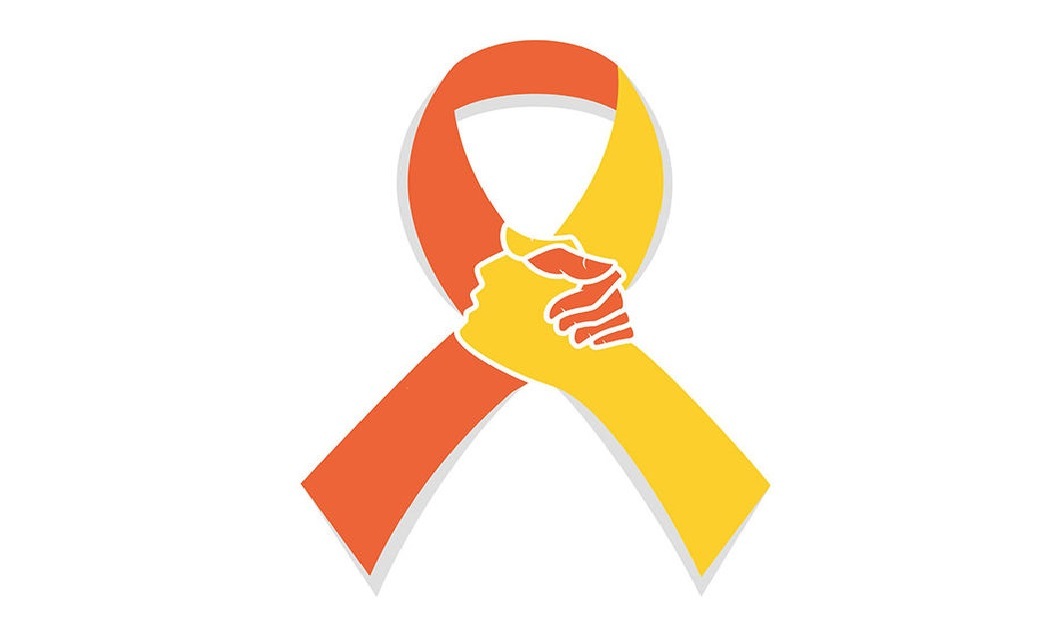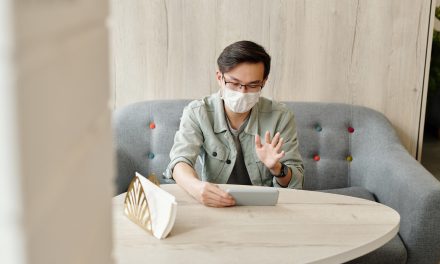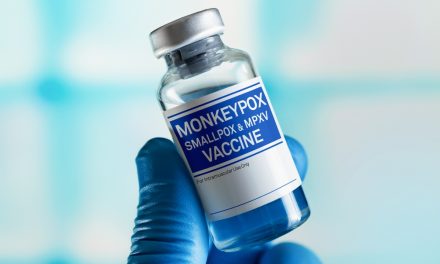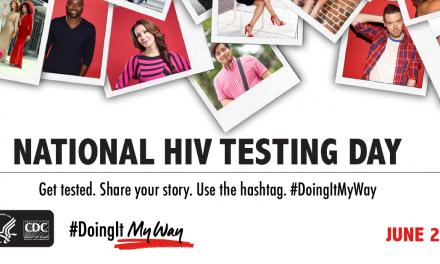(Photo Credits: IASP)
Today—September 10, 2020—marks the 17th year of #WorldSuicidePreventionDay (WSPD).
What’s in a smile? To someone thinking about suicide, it can be the first step towards life. #WorldSuicidePreventionDay is September 10. Look around and #StepCloser. pic.twitter.com/h5MJvYhycr
— IASP (@IASPinfo) September 4, 2020
Organized by the International Association for Suicide Prevention (IASP), WSPD is observed annually on this day to “raise awareness around the globe that suicide can be prevented.” Along with IASP, WSPD is also hosted by the World Health Organization (WHO) and the World Federation for Mental Health (WFMH).
According to IASP, the theme of WSPD this 2020 is “Working Together to Prevent Suicide” because this “highlights the most essential ingredient for effective global suicide prevention—collaboration.”
IASP added, “Step closer and together we can collectively address the challenges presented by suicidal behaviour in society today.”
Introducing Step Closer: A World Suicide Prevention Day Film.
— IASP (@IASPinfo) September 1, 2020
10th September https://t.co/treFbW0v77https://t.co/aNdddxxEkg#WorldSuicidePreventionDay #WSPD #SuicidePrevention #StepCloser pic.twitter.com/EWz4zLkI2j
Even before the coronavirus pandemic, over 800,000 people reportedly die by suicide each year or one person every 40 seconds while some 65,000 people attempt suicide annually not to mention that “hundreds of thousands of people think of suicide.”
But coronavirus pandemic made things worse, according to the study conducted by the Centers for Disease Control and Prevention (CDC) between June 24 to 30, 2020.
CDC surveyed 5,000 people and found that “the abilities to keep up levels of optimism were greatly challenged” largely because of “COVID-19–associated morbidity, mortality, and mitigation activities,” Los Angeles Blade reports.
Further, CDC said, “The prevalence of symptoms of anxiety disorder was approximately three times those reported in the second quarter of 2019.” CDC also cited job loss, grieving of those lost to COVID-19, and isolation as “factors for the increase in suicidal thoughts occurring in 1 in 4 young adults.”
This #WorldSuicidePreventionDay, know that there is support available if you are in crisis or need to talk. Reach out and access resources within your area. Crisis centres and other available resources around the world are listed here: https://t.co/7GZWf1V7u0 pic.twitter.com/hM1HVYy0sQ
— IASP (@IASPinfo) September 10, 2020
This particular CDC study however, did not factor in the LGBT community but The Trevor Project confirmed to the Los Angeles Blade that calls to their helpline “have nearly doubled” since the COVID-19 pandemic began. The Trevor Project mentioned social isolation brought about by the coronavirus pandemic as the main reason for the increase in the calls among the at risk LGBTQ young people. Read this story in full here.
That the coronavirus pandemic has “made matters worse” is particularly true for the transgender people in Brazil, according to activists, as reported by Thomson Reuters Foundation. This is because they are denied employment due to their gender identity not to mention that they are “trapped in unsupportive or abusive home lives during lockdown measures.”
As a result, suicide among transgender people is up by a third this first six months of 2020 according to a report by the National Association of Transvestites and Transsexuals (ANTRA), a local activist organization.
Bruna Benevides, a trans activist and author of ANTRA’s report, told the Thomson Reuters Foundation, “The death of trans people … starts long before the trigger is pulled. It’s in the insults, the evictions from home, the lack of job opportunities, it’s at school where gender is never discussed.”
Meanwhile, a separate study conducted by the Williams Institute at UCLA School of Law pre-coronavirus pandemic shows that LGBT people are at “disproportionate risk of suicidal ideation, planning, and attempts.”
The report cited “anti-LGBT discrimination and victimization” as factors that contribute to an “increase in the risk of suicidality” in the LGBT community. Ilan Meyer, Distinguished Senior Scholar of Public Policy at the Williams Institute said in a statement:
<blockquote>”Experiences of discrimination and bullying can lead to suicidal behavior in LGBT people. Policies and interventions that effectively reduce stigma and discrimination while strengthening support networks and community connectedness could help reduce the risk of suicide for LGBT adults and youth.” </blockquote>
Do you know someone who is feeling suicidal?
— World Health Organization (WHO) (@WHO) September 10, 2020
Don’t miss the opportunity to let them know you care!
Feeling suicidal often passes with the right support
👉 https://t.co/M0K8sRMUSH #WorldSuicidePreventionDay pic.twitter.com/VLlgCidiuk
Being at work can be good for #mentalhealth, but a negative working environment or work-related stress can lead to physical & mental health problems.
— World Health Organization (WHO) (@WHO) September 10, 2020
This is what employers can do to help prevent #suicide among employees#WorldSuicidePreventionDaypic.twitter.com/BBroPmQHhG
Having said all that, we have posted in the past an article that will help you understand and navigate mental health challenges this COVID-19 crisis, you can revisit it here.
We have also written tips on how to stay physically active and healthy within the comforts of our homes now that gyms are closed. As we all know, exercise improves our mental health as it reduces anxiety, depression, and negative mood; it also improves our self-esteem and cognitive function.
Where to Get Help
If you or a loved one is having suicidal thoughts, call the National Suicide Prevention Lifeline at 1-800-273-TALK (8255) or contact the Crisis Text Line by texting TALK to 741741. You may also click here or go to SpeakingOfSuicide.com/resources for more resources.
The suicide action phone numbers for other countries are:
US – Trans Lifeline: 877-565-8860 Available 24/7
For the LGBT youth under 24, call TrevorLifeline—a crisis intervention and suicide prevention phone service available 24/7 at 1-866-488-7386
TrevorText—Text “Trevor” to 1-202-304-1200. Standard text messaging rates apply. Available Monday through Friday between 3pm–10pm EST / Noon–7pm PT.
Canada – Trans Lifeline: (877) 330-6366 Available 24/7
Helpline 1: 604-872-3311 (Greater Vancouver)
Helpline 2: 18666613311 (Toll free-Howe Sound/Sunshine Coast)
Helpline 3: 1-866-872-0113 (TTY)
Helpline 4: 1-800-SUICIDE (784-2433) (BC-wide)
Website: WWW.CRISISCENTRE.BC.CA
Mental Health Crisis Line 1-866-996-0991 (Ottawa and Eastern Ontario)
Mental Help Health Line 1-866-531-2600 (Ontario)
Association québécoise de prévention du suicide: 1-866-APPELLE (1-866-277-3553)
Also, check out http://suicideprevention.ca/ for educational materials and resources. You can also find local crisis centers through this link: http://suicideprevention.ca/need-help/
Australia – For crisis or suicide prevention support for LGBTQI in Australia, please call Lifeline on 13 11 14 or visit www.lifeline.org.au/gethelp. Click here for other support services within Australia.
Singapore – Oogachaga Hotline – 6226 2002 (Tue to Thu 7pm to 10pm and Sat 2pm to 5pm)
Oogachaga WhatsApp – 8592 0609 (Tue to Thu 7pm to 10pm and Sat 2pm to 5pm)
Oogachaga face to face counselling – make an appointment
Samaritans of Singapore (SOS) 24-hour suicide prevention hotline – 1800 221 4444
Philippines – Natasha Goulbourn Foundation (632) 804-HOPE (4673) and 0917-558-HOPE (4673)
2919 (toll-free number for all GLOBE and TM subscribers)
For the other Asian countries, click here while those who are in various countries in Europe may check here.
For Adam4Adam users from other parts of the world not mentioned above, you may click this, this, and this.
To know more about WSPD, read here.










Of course, the Community is Johnny on the Spot letting everyone know its members are always just so much more affected than anyone else by something. How about the Community undertaking a campaign to reach LGTBQ+s that if they find themselves with anyone who has an issue with their sexuality, it’s those people’s issue not theirs?? Choose not to be torn down.
Suicide can be best described as a permanent solution to a temporary problem.
Marko:
A simple but a brilliant assessment!
That’s wisdom, nobodies here forever-gettin’ out alive, lmao!
I find that if you choose to be defiant; decide to reach really deep-down to your very spirit/soul. . . decide you’re going to exist to prove something to yourself then people, generally. There’s a great deal of learning about life and it’s complexities and people are adding to that, all too often negatively. But if it’s just you, then you have the power to change that ‘something about you’. If, it’s something about societies ills, that is when you really have to be a rebel enough to resist that negative, but do it in a healthy way; challenging yourself… Read more »
[…] previously written articles with resources that might be of help to you. You can check it here and here. […]